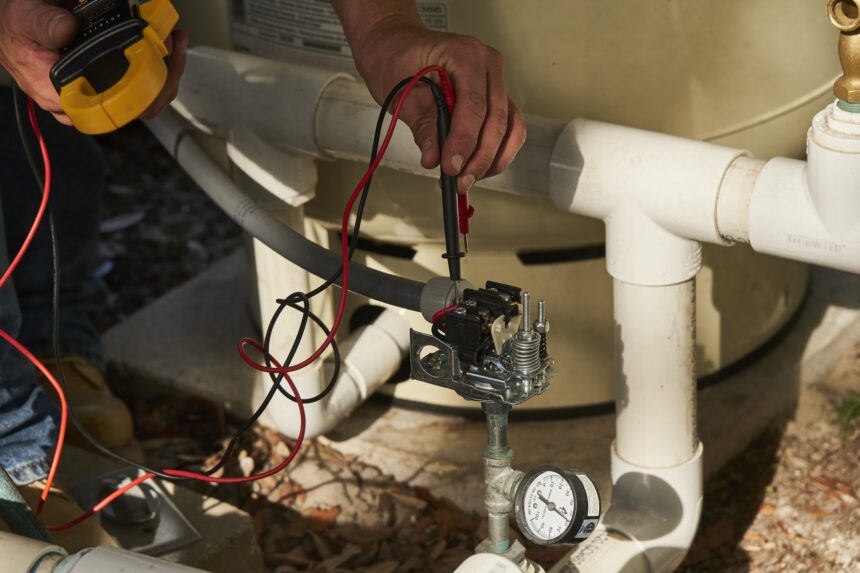If your home relies on a well for water, your well pump is the heart of the system. It works quietly in the background, ensuring you have clean, reliable water when you need it. But like any hardworking equipment, well pumps don’t last forever. Ignoring early warning signs of wear and tear could leave you dealing with an inconvenient—and expensive—breakdown. So, how can you tell when it’s time for a replacement?
Is Your Water Pressure Dropping?
Have you noticed the water pressure in your home isn’t what it used to be? Maybe your shower feels weaker, or it takes longer to fill the sink. While low water pressure can have a variety of causes—like a clogged pipe or a malfunctioning pressure tank—it’s often a red flag for well pump issues. Over time, the pump can struggle to maintain proper pressure, especially if it’s nearing the end of its lifespan. Before you jump to conclusions, rule out other potential issues, like leaks or blockages. But if the pressure problem persists, your well pump might be the culprit, and you should do a search for well pump replacement near me online.
Are You Hearing Unusual Noises?
A well pump shouldn’t be noisy. Sure, you might hear it start and stop occasionally, but loud or unusual sounds—like grinding, clicking, or buzzing—can signal trouble. These noises often mean the pump motor is wearing out or there’s a mechanical problem inside the unit. Ignoring these sounds won’t make them go away; in fact, they’ll likely get worse. Catching the issue early could save you from a total pump failure.
Is the Pump Running Constantly?
Your well pump is designed to cycle on and off as needed, not run nonstop. If it’s constantly running, it’s working overtime, which can lead to higher energy bills and faster wear. A continuously running pump might mean the system is struggling to build up pressure, which could point to problems like a leak in the system, a faulty pressure switch, or a failing pump. Whatever the reason, a pump that doesn’t take breaks is headed for trouble.
Have You Noticed Discolored Water?
Clean water is a non-negotiable, so discolored or murky water is a cause for concern. If you see sediment, rust, or other discoloration in your water, your well pump might be to blame. A failing pump can stir up sediment from the bottom of the well or allow contaminants into your water supply. Don’t ignore this issue—it could impact not just your pump but your health.
Does Your Pump Seem to Be Aging Out?
How old is your well pump? Most pumps last between 8 and 15 years, depending on the type, usage, and maintenance. If your pump is nearing or beyond this age range, it’s worth considering a replacement before problems arise. Even if it seems to be working fine, an older pump is more likely to break down unexpectedly. Replacing it proactively could save you a lot of hassle.
Why Timely Replacement Matters
Delaying a well pump replacement can lead to bigger issues. A failing pump doesn’t just stop working; it can cause damage to other parts of your water system, like the pressure tank or the pipes. Plus, a sudden breakdown means you’re stuck without water until repairs are made, which isn’t exactly convenient. By acting early, you can avoid these complications and ensure your water system runs smoothly.
What Should You Do Next?
If any of these signs sound familiar, it’s time to take action. Start by consulting professional services specializing in well pump repair near me, who can assess your well pump and diagnose the issue. They’ll help you determine whether a repair will do the trick or if it’s time for a full replacement. Replacing a well pump is an investment, but it’s one that pays off in reliability and peace of mind. After all, no one wants to deal with an unexpected water outage – or the stress of an emergency repair.
Choosing the Right Replacement
When replacing your well pump, it’s important to choose the right type for your home and water needs. There are several types of pumps, including submersible pumps and jet pumps, each suited for different well depths and setups. Your well contractor can guide you through the options, ensuring you pick a pump that delivers the performance and efficiency you need. It’s also a good idea to invest in a quality brand with a strong reputation, as this can impact the pump’s lifespan and reliability.
Don’t Forget Regular Maintenance
Once your new pump is installed, keep it running smoothly with regular maintenance. This includes checking for leaks, monitoring water pressure, and inspecting the system for signs of wear. Scheduling routine checkups with a professional can catch minor issues before they turn into major problems, extending the life of your pump and ensuring your water supply stays consistent.
Water You Can Count On
Your well pump plays a vital role in your home’s water system, and recognizing the signs of a failing pump can save you from unnecessary headaches. Whether it’s low pressure, strange noises, or discolored water, these warning signs are your system’s way of asking for help. Addressing them promptly not only protects your pump but ensures your home has the clean, reliable water it deserves. So, don’t wait for a breakdown—stay ahead of the game and enjoy the peace of mind that comes with a well-maintained water system.


